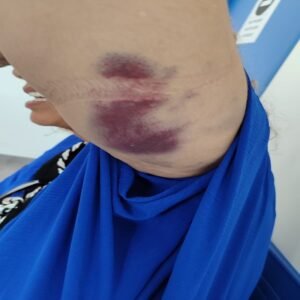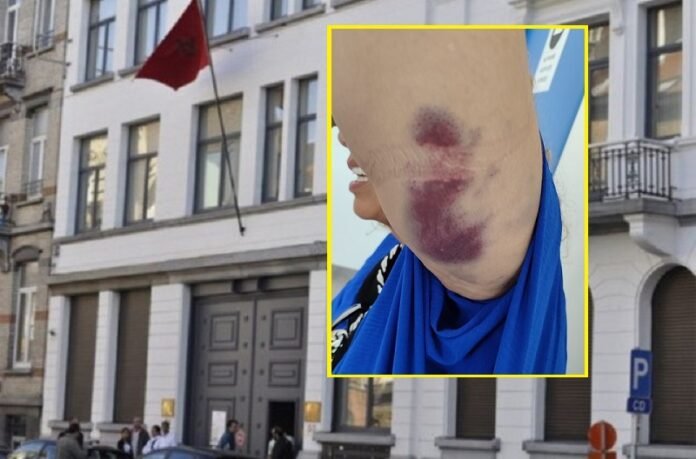“Brutal Assault on Moroccan Citizen in the Canary Islands: The Consulate General’s Security Guard Causes Severe Injuries and Negative Impact on Morocco’s Reputation”
In an unprecedented incident, a Moroccan citizen with Spanish nationality (N-M) was subjected to a brutal assault by a security guard at the Consulate General of Morocco in the Canary Islands. The guard threw her to the ground and dragged her in front of the consulate, causing her to lose consciousness and suffer severe shoulder injuries that led to a dislocation. The citizen is still receiving treatment in the emergency room and is enduring deep psychological trauma.

Brutal Treatment of Citizens Abroad: Intolerable Cruelty
This incident starkly reflects the neglect and abuse that Moroccan citizens abroad may face, where the consulate should have been a safe and supportive place. Instead, we witnessed barbaric and humiliating treatment that starkly contrasts with the royal directives aimed at facilitating services and simplifying procedures for Moroccans worldwide.
Legitimate Questions and Deep Concerns
- How can a security guard employed by the consulate commit such assaults, and why have legal measures not been taken against this brutal behavior?
- What mechanisms are available for citizens in such cases to receive support and protection, especially when it involves assaults committed within diplomatic institutions?
- What actions can the embassy or consulate take in such cases to ensure the protection of citizens and prevent the recurrence of such incidents?
- How can citizens facing such assaults abroad receive appropriate support from Moroccan authorities, and how can these incidents affect Morocco’s image and diplomatic interests in host countries?
Impact on Diplomatic Relations and Morocco’s Image
This brutal assault jeopardizes Morocco’s image and diplomatic authorities, adversely affecting Morocco’s relations with the Canary Islands and other European countries. How can Morocco demonstrate its commitment to protecting its citizens if its own diplomatic institutions are responsible for such violations? How can Moroccans abroad feel secure if the consulates and embassies meant to protect them treat them in a barbaric and inhumane manner?
Ultimately, the question remains: What would have happened if this citizen had sought help from the embassy or consulate? Would she have faced further assaults, or are there clear plans to hold the responsible parties accountable and ensure such incidents do not recur? The current situation requires a serious pause and decisive actions to ensure the protection of citizens’ rights and improve the services provided to them abroad.


